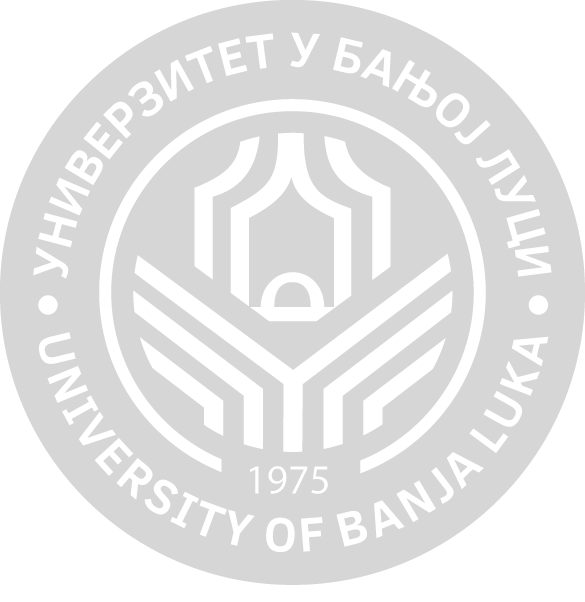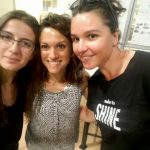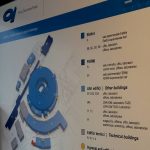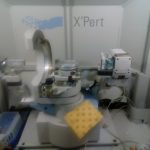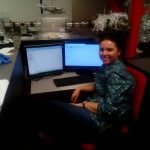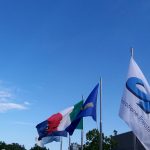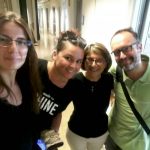

Studentkinje SP Hemija Dragana Grahovac i Sunčica Sukur boravile su od 01.07-05.07.2019. godine u Trstu na Institutu za superprovodljive i inovativne uređaje koji pripada Italijanskom nacionalnom naučnom savjetu. Studentkinje su radile analize nanomaterijala baziranih na domaćoj željeznoj rudi i mineralu pirofilitu. Omogućen im je pristup, a nakon obuke i samostalan rad na više savremenih uređaja: reaktor za termalno procesuiranje uzoraka, rendgenski difraktograf i Furije-transformisani infracrveni spektrometar. Osim odlične prakse koju su stakle, studentkinje su stekle i veoma pozitivne utiske o kolegama koji su im pružili bezbijednosnu i tehničku obuku za rad.
Rezultati će biti uklopljeni sa rezultatima postignutim u Banjoj Luci kroz nacionalni projekat „TRAKMAT“ podržan od strane Ministarstva za naučnotehnološki razvoj, visoko obrazovanje i informaciono društvo, a koji ima za cilj pružanje što više stručne prakse studentima hemije u toku boravka na Univerzitetu u Banjoj Luci.
Mjerenja i putni troškovi odlaska u Trst su podržani kroz projekat NFFA „Stapanje nanonauka i finih analiza“ koji je finansiran od strane Horizont 2020 fonda evropske unije sa 11 759 061 euro. U NFFA projektu učestvuje 19 vrhunskih ustanova iz EU, a vodi ga upravo Italijanski nacionalni naučni savjet. Cilj ovog projekta je otvaranje vrata ovih laboratorija opremljenih najsavremenijim tehnikama u nano-naukama u svijetu, prema manje opremljenim laboratorijama a koje bi mogle imati kreativne i industrijski primjenljive ideje u proizvodnji novih materijala, kao što je i Laboratorija SP Hemija.
CHEMISTRY DEPARTMENT STUDENTS IN TRIESTE PERFORMED THE CHARACTERIZATIONS OFTHEIR SAMPLES ON MODERN EQUIPMENT
Chemistry Department students Dragana Grahovac and Sunčica Sukur have been in Trieste from July 1-5 2019, at the Institute for Superconducting and Innovative Devices, belonging to the Italian National Scientific Council. The students analyzed the nanomaterials based on domestic iron ore and pyrophyllite mineral. They have been given access to, and, after a safety training, independent work on a number of state-of-the-art devices: a thermal sample processing reactor, an X-ray diffractograph and a Fourier transformed infrared spectrometer. In addition to the excellent practice they have gained, the students have got a very positive impressions about the colleagues from CNR who provided them with safety and technical training for their work.
The results will be aligned with the results achieved in Banja Luka through the national TRAKMAT project supported by the Ministry of Science and Technology, Higher Education and Information Society, which aims to provide as many professional practices to chemistry students as possible, during their stay at the University of Banja Luka.
Measurements and travel expenses to Trieste are supported through the NFFA („Nanosciences Foundries and Fine Analyzes“ project), funded by the Horizon 2020 of the European Union with EUR 11 759 061. 19 top EU institutions are involved in the NFFA project, led by the Italian National Scientific Council. The aim of this project is to open the doors of these laboratories equipped with the latest techniques in nanosciences, to the less equipped laboratories which could have creative and industrially applicable ideas in the production of new materials, such as the the Chemistry Department Laboratory from Banja Luka.
Linkovi:
https://cordis.europa.eu/project/rcn/198072/factsheet/en
http://www.vladars.net/sr-SP-Cyrl/Vlada/Ministarstva/mnk
